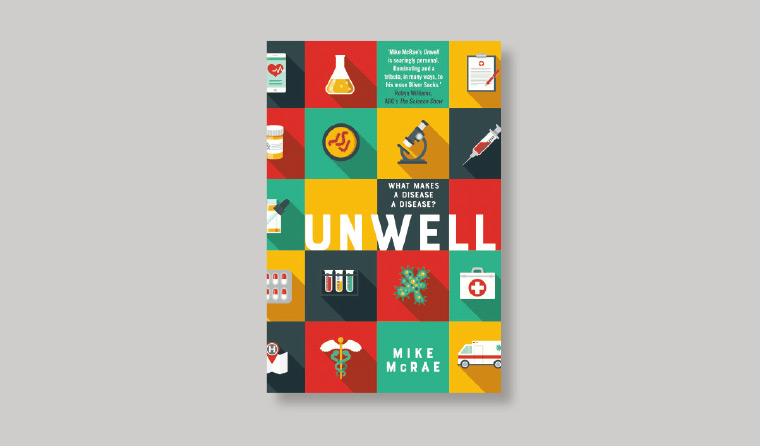
Author: Mike McRae
St Lucia, Qld: University of Queensland Press, 2018
Paperback ISBN 9780702260315
An important foundation of the way general practitioners (GPs) understand ill-health is through the interconnected constructs of disease and illness. Disease is effectively the ‘pathology’, while illness is the ‘patient lived experience.’ Although related, a clear understanding of their differences underpins core elements within the clinical process GPs use every day.
Unwell is an entertaining journey that explores this dichotomy across time and location, with a dash of the author’s personal experience thrown in. McRae is an accomplished science writer with an uncanny ability to provide both gentle and flowing prose readable by everyone and the scientific rigour to ensure reliabilty. He also explores an issue often overlooked: how and by what means diseases are defined, or perhaps more importantly, how they are removed. The concept that a ‘disease’ has a clear ‘used-by date’ is interesting. Of the multiple examples he describes, perhaps best known is hysteria (of wandering uterine infamy), which was finally removed from the mental health medical discourse as recently as 1980. There is also an interesting account of how obesity has been considered across the millenia, from ancient Greece and Rome, where it was categorised it as a disease, through periods where it was fashionable to be large, and on to the present day when the definition is moving from lifestyle choice to disease once again. How many know that Galen in ancient Rome prescribed running and a low-calorie diet for obesity?
I thorougly enjoyed this book. There are innumerble annecdotes that might be useful for GPs to help illustrate the clinical pathway when talking to their patients. Although the author’s approach appears lighthearted, the content provides considerable food for thought and is well worth the time to read.